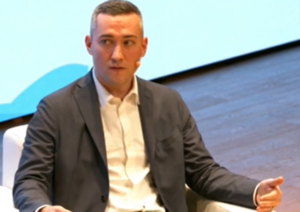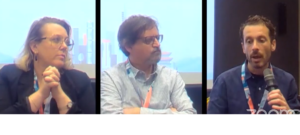Disinformation surrounding the recent elections in Brazil, and journalists’ response to it, was a topic highlighted and studied at the Global Fact 10 fact-checking summit, held in Seoul at the end of June.
The tenth edition of Global Fact 10 was organized by the International Fact-Checking Network (IFCN), and brought together more than 500 journalists, researchers and representatives of technology companies in the Korean capital. The conference was also streamed around the world.
At least three panels during the three-day conference discussed the tools, techniques and collaborations used by Brazilian journalists to address the specific electoral issues they faced in 2022.
The conference also served as an opportunity for participants and attendees to demand accountability from social media platforms that have played an active role in the dissemination of disinformation in several countries.
Twitter is a case in point. According to former Twitter Director of Transparency and Security Yoel Roth, who participated in a panel at the conference, the company currently has no plan to address disinformation. This is due to policies implemented since Elon Musk's arrival at Twitter in October 2022.

Twitter's former Director of Transparency and Security, Yoel Roth, said the company has no plan to address misinformation. (Photo: Screenshot)
In May 2023, Musk decided that Twitter should abandon the European Union's Code of Practice on Disinformation. In addition, the platform also reformed the way it grants blue verification (authenticity signal) which increased concerns about the veracity of the information circulating on Twitter.
In Brazil, messaging applications play a crucial role in the consumption of information. Specifically, Whatsapp which, according to studies, is used by 93% of Brazilians on a daily basis.
During the 2018 Brazilian elections, Whatsapp accounted for a distorting element and driver of fake news.
Therefore, during the 2022 elections, five newsrooms (Agência Lupa, Aos Fatos, Projeto Comprova, Estadão Verifica, and Universo Online (UOL)), in partnership with the Brazilian Supreme Court of Justice (TSE, by its Portuguese acronym), verified more than 300,000 questions and requests from voters, collected through six WhatsApp phone lines.
The project is known as the Confirma 2022 coalition, and the bot was built by Meedan, a global non-profit technology organization that creates software and initiatives to strengthen journalism, digital literacy and information accessibility.
"We were more prepared than in 2018 to work using Whatsapp because we could control it better," said Daniel Bramatti, editor of Estadão Verifica, during the conference.
In 2018, they did not have as much experience monitoring Whatsapp and also did not have the support of the technology platform to control disinformation. By 2022, according to the coalition's journalists, Whatsapp had taken certain measures to prevent the spread of fake news such as limiting mass messages.
Through the Whatsapp bot of Confirma 2022, users could ask questions and subsequently receive a link with the verification of the information written by some of the participating media.
"Seeing what users were asking helped us know what kind of disinformation we needed to work on. It saved us time," said Natalia Leal, CEO of Agência Lupa.
Fact-checking was limited only to the electoral process and was not meant to analyze disinformation about any particular candidate. However, it required an important effort for the participating journalists and media.
"Normally, we receive 200 suggestions of possible news items for fact-checking a day. During the elections we had about 4,000 a day. It was a lot," Leal said.
"We had to divide our team by platforms. One group was focused only to Whatsapp," Leal added.

Natalia Leal, CEO of Agência Lupa; Daniel Bramatti, editor of Estadão Verifica and Pierre Conti, head of product and strategy at Meedan. (Photo: Screenshot)
During another panel, Marcela Duarte, also part of the Agência Lupa team, said that during the 2022 electoral process more than 25 people, from different parts of the country, were working remotely verifying information.
"Remote work brings diversity to the newsroom. During elections, we partnered with Chequeado from Argentina to use their tool to translate debates and interviews," Duarte said.
Duarte also explained that by working remotely they decided to have their entire election coverage process in writing, which included guidelines on what to do in case of errors, whom to call, contacts for the entire team, and even steps to follow in case of a coup attempt.
Thousands of people have attended the Global Fact fact-checking summit since its inception in 2014. The conference has taken place in cities such as London, Oslo, Buenos Aires, Madrid, etc. Projects such as International Fact-checking Day and the IFCN Code of Principles have emerged from this conference. The date and location of the event for 2024 is yet to be confirmed.